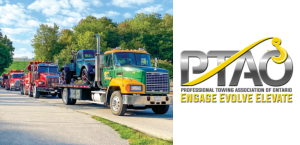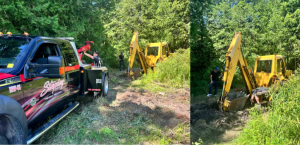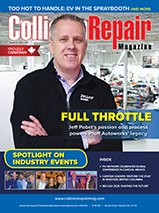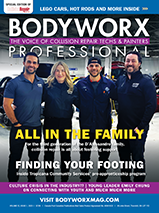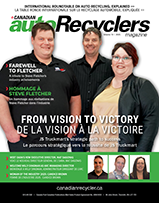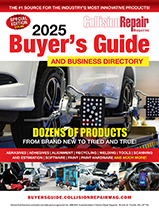By Mark Kimmich
Toronto, Ontario — September 21, 2012 — The face of the towing industry is the ubiquitous tow truck. Of course, for operators, the truck represents their livelihood and their main piece of equipment, so this equipment undergoes a lot of wear and tear over the course of a given day, month, year and beyond. Operators are always concerned with what is new in equipment and how to increase safety, refine efficiency and improve the bottom line.
When it comes to replacing equipment and maintaining a current fleet, operators have different points of view on when and how to replace or maintain ageing equipment.
“Part of it is just seeing what’s out there, what’s going to work within the fleet that you have,” says Fernando LeBlanc, Operations Manager of Cliff’s Towing in Edmonton.
Cliff’s Towing has a fleet in excess of 85 strong, and their fleet runs the gamut from a smaller highway division, to a deck and big tow division.
“We haven’t replaced any equipment in the last year,” says LeBlanc. “We are planning on stretching our fleet out more than we normally do. We’re just waiting to see what the economy is going to do. When you’re running a fleet this size, you’re always watching what the economy is doing.”
Nick Roscoe, President and Owner of Dr. Hook Towing in Winnipeg, has replaced equipment at a lower rate than normal as well, but for different reasons.
“We had an abnormally warm winter last year,” explains Roscoe. “That warm winter meant less towing, and it has put a dampener on equipment replacement for the summer.”
Ironically, according to Roscoe, this is a great time to replace equipment, particularly if you are dealing with an American dealer or manufacturer.
“We are aligned with Miller Industries, probably about 70% or what we have is Miller product. It is a fantastic time to replace because of the dollar.”
Equipment replacement is down because of some abnormal meteorological conditions and a slow economy, but in the case of Roscoe and Dr. Hook, there has also been another reason for equipment being replaced at a slower rate than usual.
“18 months ago, we invested in a huge capital project to implement GPS into the way we manage our fleet.” Roscoe says that the $400,000 investment has paid he dividends and that the GPS units are “worth their weight in gold.”
“For larger fleets like ours, you need to look at software solutions for keeping track of your fleet and the miles traveled. Our number one expense is wages, followed by fuel. If you can reduce those through higher efficiency, it is definitely to your benefit.”


